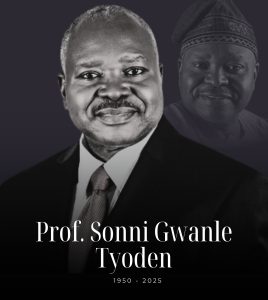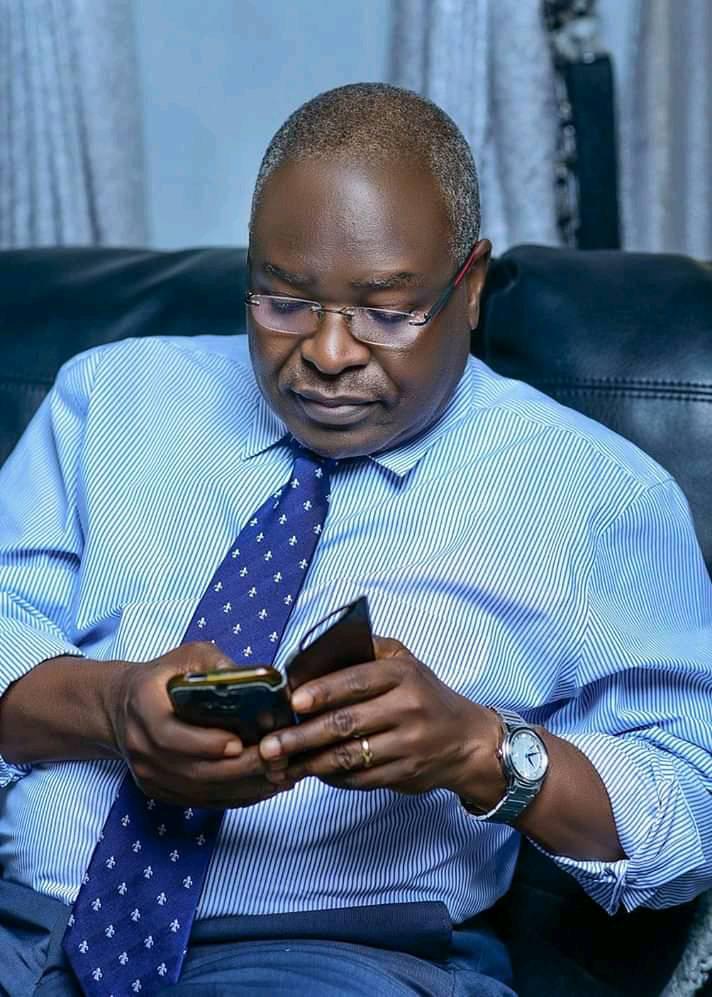By Prof Hassan A. Saliu
The discourse surrounding the role of scholars in politics persists in Nigeria, precipitating a dichotomy between two distinct perspectives. The first posits that academic pursuits should remain distinct from political engagement, lest scholars compromise their neutrality and objectivity. Conversely, the second perspective advocates for academics’ active political engagement, leveraging their theoretical expertise to inform and transform governance.
This dichotomy reflects a broader discourse within the Nigerian Political Science Association (NPSA). Historical instances, such as the 2015 near-debate at Keffi that involved the then-NPSA President, Prof. Sule-Kano, and Prof. Emmanuel Ezeani over the NPSA’s relationship with government, and the 2023 communiqué facilitated by CISLAC, underscore the complexities of navigating the academia-politics nexus. From the former perspective, many members objected to visiting Aso Rock to present our agenda-setting communiqué to the new president. This stance reflects the diversity in our membership.
 A middle-course approach appears plausible, wherein scholars engage in politics while maintaining a critical distance. Our senior colleagues who have ventured into practical politics must have noticed this necessity in their engagement with Nigeria’s politics. These include: Professors. Kalu Ezira, Bolaji Akinyemi, Sam Oyovbaire, Tunde Adeniran, Julius Ihonvbere, Sonni Tyoden, Attahiru Jega, Rufai Alkali, and others too numerous to mention their names.
A middle-course approach appears plausible, wherein scholars engage in politics while maintaining a critical distance. Our senior colleagues who have ventured into practical politics must have noticed this necessity in their engagement with Nigeria’s politics. These include: Professors. Kalu Ezira, Bolaji Akinyemi, Sam Oyovbaire, Tunde Adeniran, Julius Ihonvbere, Sonni Tyoden, Attahiru Jega, Rufai Alkali, and others too numerous to mention their names.
Given Nigeria’s type of politics, our younger colleagues may wonder about their impact level. It is observable that the country’s politics is material-driven with a total disregard for principles. With these factors in mind, the academics in politics cannot fairly contest in a heavily material-driven and non-attachment to ideological politics. As such, the impact level is to be limited. By that, I am not suggesting that our members should no longer be involved in practical politics; they should. With many of them in the political process, we may see a rise in the impact level.
Prof. Tyoden was born in 1951, grew up, and attended elementary school in his native area of the Plateau state. His journey to acquire his degrees commenced in 1972 when he was offered admission as a pioneer political science student at the University of Ibadan’s Jos campus. Throughout his studentship, he demonstrated a strong determination to excel in the discipline. Upon graduation in 1976, he secured a scholarship from his native Plateau State for higher degrees in Political Science with specialisation in International Relations.
Based on his superlative performance at Lancaster University in the UK during his Master’s programme, he was allowed to proceed to the doctoral level, which he completed successfully in 1980. As a patriot, Prof. Tyoden returned to Nigeria, joining the University of Jos, where he worked alongside Prof. Jonah Elaigwu to strengthen the department. He subsequently established himself as a dedicated scholar and mentor, known for his intellectual rigour and commitment to scholarship.
Prof. Tyoden became a Professor in 1990 and served in that capacity for twenty-two years before he retired in 2012. During this period, he was Head of Department, held some administrative positions, and ultimately served as the VC of UNIJOS. He distinguished himself as a scholar through his publications, which cut across significant aspects of political science.
Specifically, the book “Kaduna Mafia” (1987), which he co-authored with Bala Takaya, remains a notable contribution to political science, particularly Nigerian politics. It unmasked the existence of an informal elite group in the North with uncommon power and influence in Nigeria’s politics. The book’s appearance and details ruffled some feathers, as the group’s activities before then were only known to those who had crossed its path.
It is not easy to gloss over another book he co-edited with Prof. T. Imobighe, Nigeria’s African Policy, published in 1980. It was a book that came out of a programme organised by the National Institute of Policy and Strategic Studies (NIPSS). The book attempted to review an issue area in Nigeria’s foreign policy. Prof. Tyoden also co-authored another book with Dr. Iyorchia Ayu on Civil-Military Relations that generated some heat in academia because of the perspectives shared in the book, which some of his colleagues debated and are still debating up to the present time.
Prof. Tyoden’s activism was evident in his involvement with the Academic Staff Union of Universities (ASUU). He had served as the branch Chairman at the University of Jos, demonstrating his commitment to academic freedom and social justice. He persevered despite facing challenges, including being sacked from the University of Abuja over governance issues.
After a brief period of unemployment, his mentor, Prof. Elaigwu, offered him a job at the Council for Intergovernmental Relations, Abuja, with commensurate benefits. He later contested for the position of Vice-Chancellor, scaling through in his second attempt. Although a drama ensued during the process, his name was eventually approved as the VC after the speculation about his replacement with another candidate who came second in the interview.
He served for the mandatory five years before vacating the seat. A significant turnaround was witnessed when he held fort as the head of the University. New programmes were introduced while consolidating the old ones. His interest in ICT and the security of the University was manifest as he invested his time and the resources of the University in them. There was not much tension in the University during his time, as was characteristic of some other universities in the country. His next point of duty was the NIPSS, Kuru, Jos, where he made valuable contributions before retiring in 2012.

The book we all have to read again because meaning is never static
Prof. Tyoden’s legacy is a testament to the impact that scholar-politicians can have on Nigeria’s development. His commitment to scholarship, activism, and public service remains an inspiration to future generations.
At a more personal level, I had the privilege of interacting with Prof. Tyoden on several occasions, including during his tenure as an external examiner at the Nigerian Defence Academy (NDA), Kaduna, in the 1990s. Our relationship blossomed over time, and I had the opportunity to visit him in Jos on multiple occasions. The first two visits were in connection with referee letters. The third was in 2021 during the NPSA North Central Zone conference held at NIPSS, Kuru, Jos. I was duly informed about his generous donation to the North Central Zonal Conference of the NPSA in 2021.
The last visit was in 2023, when I featured in the Nigerian Institute of Public Relations (NIPR)’s programme. After the programme, he sent his driver to the venue to pick me up. I was driven straight to his office as the Deputy-Governor, where we discussed NPSA’s affairs mainly. He extended the usual gift to me when I was leaving the office. Our relationship was cordial; he once sent two requests to me for admission and employment. I could only deliver on the former request due to the circumstances of the University of Ilorin at the time.
I contacted him in 2023 to present a paper at the 34th NPSA conference. However, he declined, citing his reluctance to comment publicly about Nigeria immediately after leaving office as the Deputy-Governor of Plateau state. Given the experience he passed through during the ruling party’s Plateau State governorship primaries in 2022, I understood his decision and respected his judgment on the matter.
As Deputy-Governor, Prof. Tyoden’s maturity and knowledge of political theory helped end the era of Governor-Deputy Governor feuds that plagued his predecessors. One notes that an unhealthy relationship between Governors and their Deputies is a general trend in our country, where some Governors and their Deputies have not enjoyed a cordial working relationship. Often, the issue in contention revolves around resources and control over them based on the thrust of Nigeria’s politics that places a high premium on the reward aspect of politics, not the service aspect, more so, when the Deputy-Governors are seen more like spare tyres who are not needed when there are no faults with the main tyres.
He left behind many mentees who are doing well in their chosen careers. I take the liberty of mentioning a few of them. These include: Madam Julie Sanda, Prof. Adeyi Major, Steve Esa Attah, Dr. Zanna Bukkar Mohammed, and many others, too numerous to mention each person by name. Unsurprisingly, many of his former students hung to him like bees because of his hospitality and generosity, which he extended to them whenever they called at his house when he was alive.
Adieu, Prof. Tyoden, a man of perseverance, tolerance for alternative perspectives, lover of students and junior colleagues, developer of human capacity, and one with strong convictions. The NPSA family will miss his significant contributions to academia, unionism, and politics. Rest well.
To the family he left behind, our prayers are with them during this trying time.
The author is the President, NPSA




























